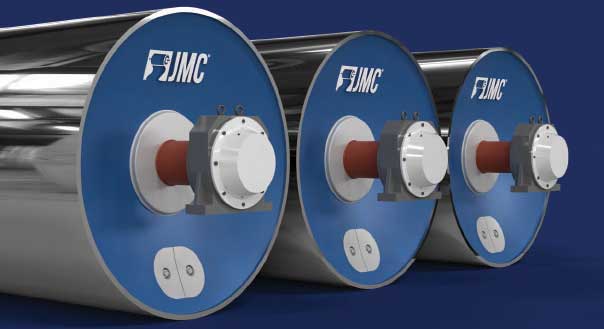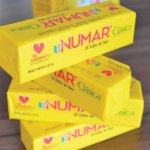The use of steel instead of cast iron allows a significant reduction in shell thickness which decreases thermal resistance and thus increases heat transfer. JMC Paper Tech brings steel drying cylinders which enable paper mills to conserve energy.

JMC Paper Tech Pvt. Ltd. has launched the all-new era of steel drying cylinders. Truly, ‘Made in India’, the steel dryers provide numerous advantages to the paper companies in terms of energy-saving due to lower consumption, flexibility, investment costs, safety, and weight.
Since steel is a stronger material and has a modulus of elasticity that is considerably more than 2.1 times higher than cast iron, designing the pressure vessel safety codes allows for better design parameters on steel.
The much higher allowable stresses for steel mean that the shell wall can be thinner, which gives the positive benefit of higher heat transfer rates. Lower shell root thickness for steel means the resulting heat flow is higher through the cylinder. This gives a higher evaporation rate which can flexibly either be used: to increase the production rate at constant energy input or, when the machine speed is kept constant, to reduce the drying energy.
Watch: Evolution of Paper Based Packaging
Yankee dryers can be metalised prior to increasing the surface hardness, life and water resistance. Metallisation eliminates the need for re-grinding of the shell wall base metal, which on cast iron can eventually result in de-rating. Metallisation is also a key reason that steel Yankees are far less prone to developing chatter problems.
The drying cylinder by JMC Paper Tech of diameters 1220 mm, 1500 mm, 1800 mm, 2100 mm and face length up to 5.1 mtr are available with internal machining and grooving whereas Yankee cylinder of diameters 3048 mm, 3658 mm, 4267 mm, 4876 mm and 5486 mm and face length up to 5.1 mtr would be available without internal machining and grooving.
Substantial field data available today from the company’s experience and client relations for steel dryer applications has led to technological and manufacturing process guiding principles. The use of steel instead of cast iron allows a significant reduction in shell thickness which decreases thermal resistance and thus increases heat transfer.
Also Read: JMC Paper Tech: Moving Towards Automation with State-of-the-Art Machineries
Upon material procurement & manufacturing and completion, each fabricated dryer is thoroughly inspected with 100 percent ultrasonic and magnetic testing of all components.
Phased array and 100 percent X-ray inspection are also performed on all structural welds. Dimensional and pressure tests are performed before the final approval of the cylinder.



